'Genocide accusation of China nonsense,' belittles those who suffer such crimes: scholars
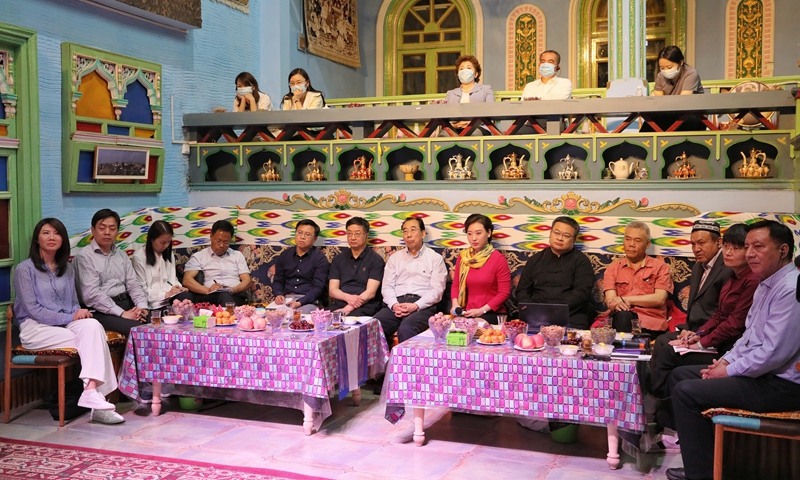
China Public Diplomacy Association held an online forum on Xinjiang topics in Kashi Prefecture of Xinjiang Uygur Autonomous Region on Thursday. Photo: Wang Xiaoji
The accusation of "genocide" in China's Xinjiang Uygur Autonomous Region has no foundation nor evidence and more people from the international community are seeing rumors on Xinjiang being exposed, Chinese and foreign experts said during an online forum on topics about China's Xinjiang.
A group of Chinese scholars organized by the China Public Diplomacy Association visited Urumqi, Hotan and Kashi prefectures in China's Xinjiang during the past week and shared their experiences with international scholars at the international online forum themed "Xinjiang in My Eyes" on Thursday.
Chinese experts showed videos and pictures they took during their trips in the three cities and many said the region has experienced great developments compared to their previous trips here, which proved the anti-terrorism and deradicalization measures have been effective. There has not been any terrorist or violent events in Xinjiang for more than four years.
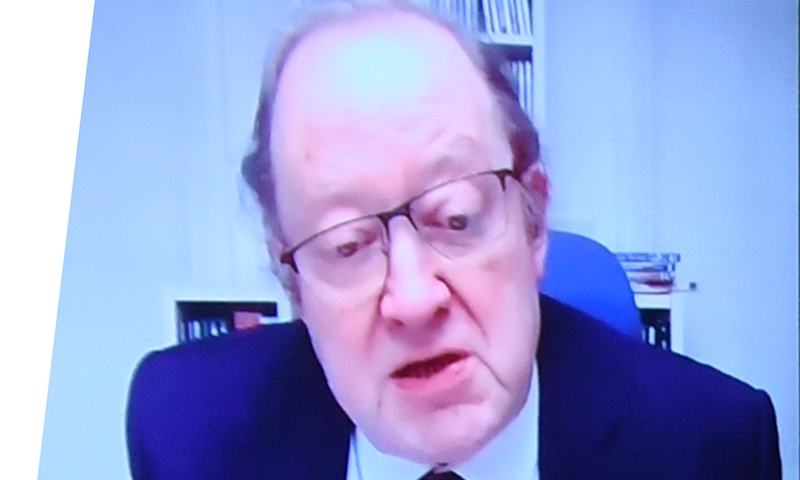
John Ross, former director of Economic and Business Policy of London and also senior fellow of Chongyang Institute for Financial Studies at Renmin University of China, speaks at the online forum. Photo: Zou Yi
Given that the US and some Western countries are trying to label China as committing "genocide" toward Uygurs in its Xinjiang region, John Ross, former director of Economic and Business Policy of London, said at the forum that "genocide is one of the most terrible crimes in history" and usually mentioned when discussing real events that took place, like what Germany did to the Jews and when Britain killed native people in Tasmania.
It would be disgraceful to use "genocide" to accuse China of a crime that does not exist and it would hurt those who have actually suffered such terrible crimes, said Ross, noting that the world has seen many big lies which caused terrible wars and each time the truth emerged eventually after many people died, for example, the Vietnam and Iraq wars. However, "genocide" in China's Xinjiang has still been claimed by some.
Ross gave several reasons that disproved claims of "genocide" of Uygurs in China's Xinjiang, including that the Uygur population in Xinjiang has outnumbered other ethnic groups for the past years; and if the accusation that around a million people were kept in "camps" was true there would be numerous pictures but currently the so-called images of "camps" in Xinjiang have been found to be schools or other normal facilities.
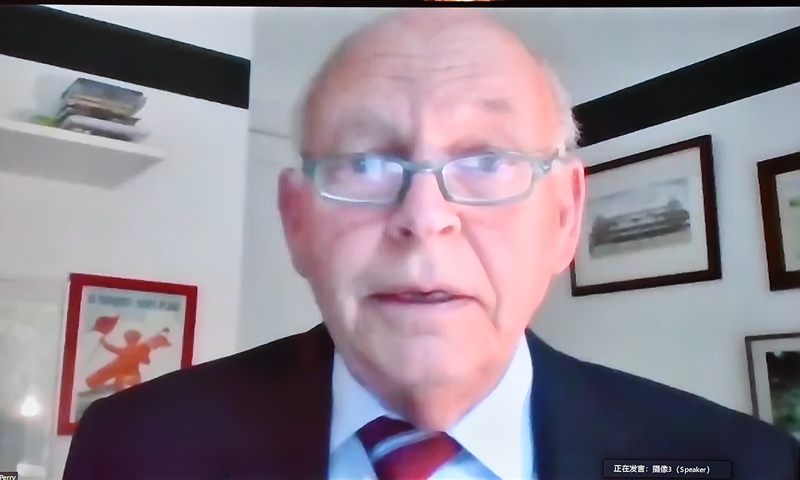
Graham Perry, visiting professor of Dispute Resolution at the University of International Business and Economics, speaks at the forum. Photo: Zou Yi
There is no genocide, no forced sterilization and no forced labor in China's Xinjiang region, said Graham Perry, visiting professor of Dispute Resolution at the University of International Business and Economics at the forum.
Perry said that when he first heard of such accusations against China, he did research and questioned reports on Xinjiang made by German scholar Adrian Zenz, who gave no actual evidence.
When talking about genocide, something really terrible must have occurred, such as the massacre of the Jews, but there is no evidence to accuse China of committing "genocide." Germany witnessed rising anti-Semitism around 1930 before the massacre of the Jews. China has no history, no experience nor record of racism, and there is no hatred toward any ethnic groups in China, the professor said.
He noted that the main reason for the US to hype Xinjiang topics is China's success, which the US thinks is unacceptable and a big threat to its own hegemony.
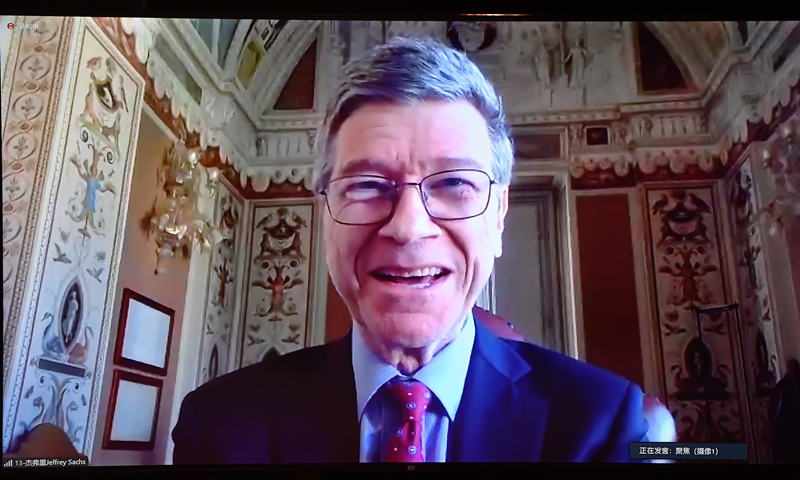
Jeffrey D. Sachs, American economist and director of the Center for Sustainable Development at Columbia University, speaks at the forum. Photo: Zou Yi
Jeffrey D. Sachs, American economist and director of the Center for Sustainable Development at Columbia University also expressed his concerns on the US' decision to throw around the word "genocide" against China. He said there is no evidence to support it, and the media is widely using this "explosive" word to stimulate the situation, including calling for a boycott of the Beijing Olympic Games.
But there should be no cold war and the world needs cooperation to deal with shared challenges, according to Sachs.
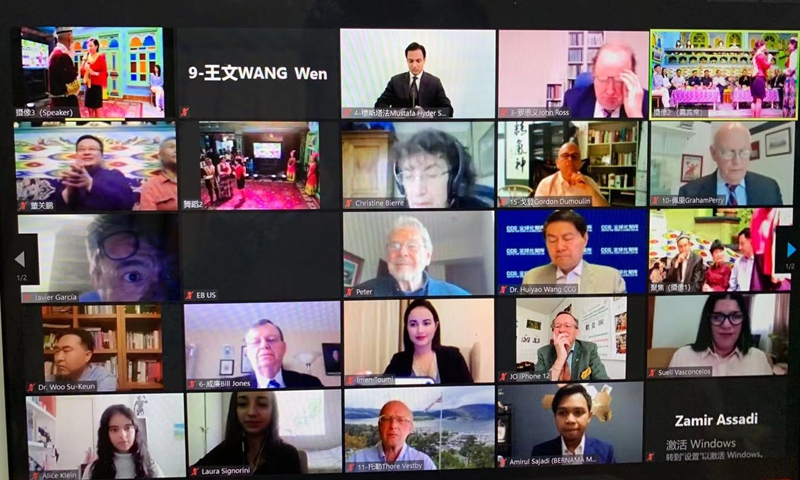
Foreign scholars share views on Xinjiang topics at the forum. Photo: Liu Xin/GT
Wu Hailong, President of China Public Diplomacy Association, concluded at the forum that seeing is believing and hoped that people who are interested in the situation in China's Xinjiang can visit the region and see local residents' happy lives with their own eyes.

